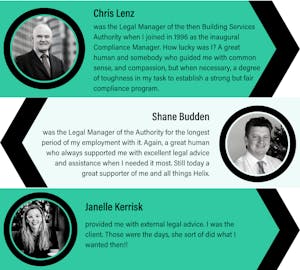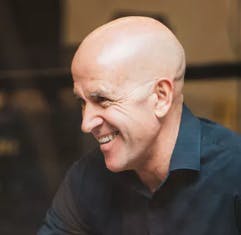What do I mean by ‘lawyers who come from the future will flourish in construction’?
In my previous article titled Contractors who come from the future will flourish in construction, I stated:
“I have recently immersed myself in the Queensland Government and Gold Coast Council procurement policies. They clearly state the factors given weight to when determining who to contract with in their procurement policies, namely:
This is by no means an exhaustive list. In other words, the Queensland Government and Gold Coast Council are indicating their expectations. They expect Contractors to have specific values, standards, and commitments if they want to do business with them NOW. I have to say there is copious information published by these organisations in this regard.
Knowing the Government and major Council’s procurement policies is highly worthwhile for Contractors to understand. This applies even if they do not intend to tender work for them.
After a lag, I am of the view the private sector will increasingly follow suit.
The challenge for contractors is to look into the future and make a call on impending procurement trends and developments.
As I have previously stated, Contractors need to get in front of these changes if they want to be successful.
I will have much more to say in terms of likely new industry procurement values and standards in subsequent articles.
Contractors who come from the future will flourish.”
In my view, for lawyers to efficiently, effectively, and innovatively service their construction industry clients needs, they are going to have to be ‘cut from the same cloth’.
In other words, they will have to come from the future. I believe that lawyers who come from the future will flourish in construction.
Who am I to have a view on this? After all, I am not a lawyer!
While I am not a lawyer, I have worked very closely with lawyers for almost 50 years. For the vast majority of that time, I have been a client.
For the first 23 years, I was employed by the NSW Department of Fair Trading to carry out thousands of investigations. These investigations looked into alleged breaches of various consumer protection legislation. My recollection of interactions with lawyers during that period are generally negative, with some outstanding and notable exceptions.
For the following 22 years, I worked with the Queensland Building Regulator. Here I received internal legal advice and procured external legal advice.
My recollection of interactions with lawyers during that period are the exact opposite, something I am pleased to report. In particular, there are three lawyers I would like to acknowledge who were major influences and supporters of me:

All I have to say concerning Janelle is that I voted with my feet and jumped at the opportunity to join her and others in establishing Helix Legal.
The point I am making here concerning construction lawyers, is that I have been very fortunate. Both to have come under the positive influence of these three, as well as many others. All of which I have high regard for.
What makes a great lawyer in my experience?
Consequently, I have a clear understanding of the necessary characteristics, skills and knowledge that comprise, in my view, a great construction lawyer in the provision of legal advice to clients.
Over this extensive period, I have had a bird’s eye view of the practical value lawyers can provide to their clients. I have watched this space progress over the years.
My definition of a lawyer’s practical value to clients has nothing to do with them providing advice on the law.
It has everything to do with providing strategic guidance and assistance to clients based on the lawyer’s understanding of a rapidly changing world. It involves knowing the risks and opportunities that present themselves to clients who lean into the future, eyes wide open.
For the past 5 years, I shifted from being a client to somebody having a voice at the table. This developed with the establishment of Helix Legal.
As stated on our website:
“Helix was founded with one clear idea; to serve the building and construction industry by providing meaningful solutions and a better way of doing things.
We’ve got a rock-solid foundation of knowledge about your rights and obligations; but we offer more by understanding our industry, focusing on the needs of our clients and adding insight and innovation beyond the legal tradition to come up with solid strategies and a clear plan for a better outcome.”
As a Helix non-lawyer industry professional, I support the provision of traditional commercial law services. However, I also advocate for fostering a culture of innovation as a means to make our client relationships more open, effective, efficient, collaborative, flexible, and wait for it……… fun!! I hope to see more of this in the industry. Then, I think lawyers from the future will flourish in construction.
What do I think are the two main characteristics of a lawyer from the future?
At the outset, they have to know the law!
Furthermore, young legal clerks/lawyers have certainly been at the forefront of my developing views in this regard. However I recognise the requirement for lawyers to have a certain mindset (outline below). Therefore, any lawyer, regardless of age, could be ‘a lawyer from the future’ in my view.
There are two main ‘non-law’ characteristics that I think will define ‘lawyers from the future’.
1. They will understand the significance of all the numerous, new and RAPIDLY emerging social awareness issues that are emerging through procurement requirements and policies.
Dare I say it, ‘woke’ knowledge will be vital and very useful.
‘Woke’ means awakening to social issues like for instance the elimination of modern slavery in the industry.
Let’s just stop and have a think about this appalling human rights exploitation.
The Queensland Government has a plan to eliminate modern slavery in supply chains.
- An estimated 40.3 million people are in modern slavery globally.
(Source: The Global Slavery Index 2018)
- Approximately $12 billion in at-risk products are imported into Australia.
(Source: The Global Slavery Index 2018)
I am of the view that a ‘lawyer from the future’ will proactively make their clients aware of this plan. They will present the government’s plan to eliminate slavery and also sit down with them to review their supply chains. COVID-19 has disrupted supply chains right throughout the world. So ironically, this presents an opportunity for clients to review and reset their supply chains. This ensures, over time, they do not import at-risk products.
The Modern Slavery Act 2018 (the Act) came into effect on 1 January 2019. The Act established a national Modern Slavery Reporting Requirement.
I invite readers to search the publication of modern slavery statements on a Register and look for contractors of interest.
2. They will know how to effectively communicate and collaborate with clients in a relevant, futuristic, innovative, respectful and inclusive manner.
‘Future fit’ culture and ethos in other words. I could go on for pages about this but I will try and be succinct.
There is an old saying that I still agree with, namely, culture starts from the top down. Under this scenario, it is the boardrooms in big organisations that determine what the company culture will look like. This includes establishing a workforce that lives and practices that culture.
I am noticing that young clerks and lawyers have a clear idea of what they believe the appropriate culture is. They want this displayed in 2022 and looking forward by saying, ‘we want to bend the law in our shape, not the law to shape us.” They recognise that they are the future who understand the challenges for our clients. So we better listen up!!!
I get it. I for one am listening.
Significantly, they are not rejecting the need for creating realistic and functioning procedures. This includes establishing a code of conduct, functioning procedures and effective communication strategies. Further, they do not reject the need for shared values, symbols and goals in a company.
However, they want a seat at the table, nothing more and I think they have a lot to contribute. They can help to develop a legal business culture that is a ‘future fit’ match for the needs of clients.
I have deviated to make a point that it is in the best interest of legal businesses to find a table for these ‘lawyers from the future’. However, I go back to answering the question I posed and try my best to answer, namely: what do I think are the two main characteristics of a lawyer from the future? and how will this benefit the construction industry?
Lawyers who come from the future will flourish in construction
Let’s remember that numerous cultures and sub-cultures are operating in the construction industry. ‘Lawyers from the future’ will know how to recognise different traits in these sub-cultures and communicate with them effectively.
They will encourage contractors, designers, clients, and supply chains to cooperate because they will be great futuristic communicators. To achieve sustainability for all parties, ‘lawyers from the future’ will need to communicate with ALL parties effectively. The parties need to be made aware and share risks to achieve a sustainable outcome.
In summary, I believe the industry is on the cusp of a new era of cooperation between parties.
The old, confrontational, aggressive, grinding parties into submission when a problem or issue emerges is rapidly coming to an end.
Not a moment too soon I say!!
This will require a new type of lawyer.
Lawyers who come from the future will flourish in construction.
Not intended as legal advice. Read full disclaimer.



